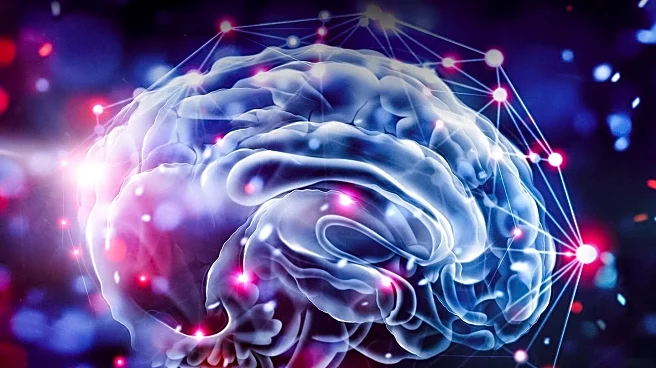What's Happening?
Researchers from the University of Fukui, Japan, have discovered that child maltreatment leaves lasting biological marks on DNA, which in turn affect brain structure and function. The study, published in Molecular Psychiatry, utilized a genome-wide epigenetic
analysis to identify four key methylation sites—ATE1, SERPINB9P1, CHST11, and FOXP1—linked to maltreatment. Notably, changes in FOXP1 were associated with reduced gray matter in brain regions responsible for emotion and memory. This research highlights the profound impact of early trauma on both biological and behavioral levels, suggesting potential pathways for early detection and trauma-informed care.
Why It's Important?
The findings underscore the significant long-term effects of child maltreatment, extending beyond psychological impacts to biological changes in the brain. These epigenetic markers could revolutionize healthcare by enabling early diagnosis and personalized treatment for affected individuals. In forensic medicine, they could aid investigations and support child welfare efforts. Public health policies might leverage these biomarkers to drive preventive care, potentially reducing the societal impact of maltreatment. The study's implications are vast, offering new tools for identifying and supporting at-risk children, thereby helping to break the cycle of abuse.
What's Next?
The researchers have developed a methylation risk score (MRS) using the identified DNA methylation sites, which successfully distinguishes individuals with a history of maltreatment. This score could serve as an objective screening tool for childhood trauma, facilitating early intervention. The study reflects the mission of the University of Fukui's Division of Developmental Support Research, which aims to integrate neuroscience, clinical practice, and community-based approaches to promote resilience and well-being for children and families. Future research may focus on refining these tools and expanding their application in clinical and forensic settings.
Beyond the Headlines
This research highlights the ethical and societal responsibility to address child maltreatment comprehensively. By understanding the biological underpinnings of trauma, stakeholders can develop more effective prevention and intervention strategies. The study also emphasizes the importance of interdisciplinary collaboration in tackling complex issues like child abuse, combining insights from neuroscience, psychology, and public health to foster a holistic approach to child welfare.















